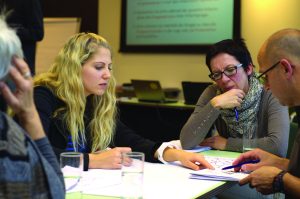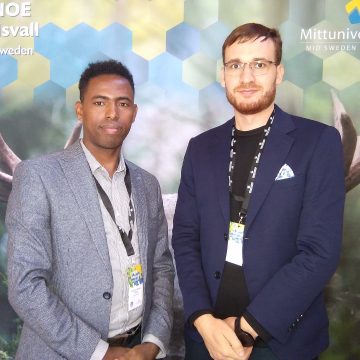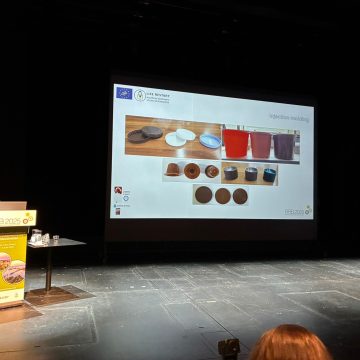The strategic role of partners, the central role of stakeholders
Reuse of bEer SpenT
grAin
foR bioplasTics

A wide network of out-standing partners with field-specific know-how has been designed to activate LIFE RESTART: a research institution such as the University of Messina, Engineering Department, three enterprises such as Crossing srl, a University Ca’ Foscari Venezia spin-off, the cooperative Birrificio Messina and Bibetech S.p.A; two social economy actors, EcosMed and Fondazione Me.S.S.In.A. as project coordinator.
Research and development
The University of Messina, together with its Engineering Department specialized in materials engineering, industrial chemistry, sustainability and environmental protection, will work on the design of several biopolymers mix by means of extrusion and it will study their reciclability thanks to the development of a small pilot plant. Crossing srl will aid in this phase. Crossing is an innovative spin-off from the University Ca’ Foscari in Venice, with a strong expertise in sustainability and green chemistry for the valorisation of agricultural wastes and for the implementation of sustainable technologies for eco-friendly bioplastics. Crossing’s activities will focus on the chemical-physical characterization of new biopolymers and on polymers’ biodegradability tests. Besides support on on the industrial scalability phase and on dissemnation activities, Crossing will verify the feasibility of the protocols for the green extraction of high-value active substances in spent grains to be used in the pharmacological, cosmetic and nutraceutical sectors.
Spent grain, pre-drying and final products
Birrificio Messina, successful workers buyout promoted by Fondazione Me.S.S.In.A., has become a best practice at national level through its important experience and its skills. It will activate a semi-industrial implant for spent grains pre-drying and water recycling, thus reducing transportation costs and impacts. This way, i twill be able to re-use water, thus increasing its environmental performances and decreasing production costs.
Giardineria Italiana, a cooperative society of the Mati 1909 Group, was founded in 1999 from a project of Andrea Mati, in Pistoia, a European green capital with more than 150 years of tradition, to offer passionate and competent gardeners for the care and quality maintenance of any type of green space, whether it is a terrace, a small garden or a large park. Giardineria Italiana is a social cooperative that also participates in projects to rehabilitate people in marginalized situations through training in production nurseries. It succeeded Bibetech S.p.A., a manufacturer of plastic packaging, in August 2024.
Project coordination and Fabbrica Zero implementation
Among social economy actors, EcosMed società cooperativa sociale aims at the promotion of sustainable human development on the territory. It is one of the first founders of Fondazione Me.S.S.In.A. and it is the main actor in the implementation of its policies and it will implement the technological innovation and the management and development of “Fabbrica Zero”, the new bioplastics production site to be situated in Roccavaldina, in the province of Messina. EcosMed will further work to maximise LIFE RESTART soical and environmental impacts, moving from the selection of disadvantaged subjects to be integrated in the production chain.
The whole project is coordinate by Fondazione Me.S.S.In.A which leads the Social Evolved District in Messina recognized by the European Commission as a Cluster of Social and Environmental Innovatione. The Fondazione is a philantropic instituiton pursuing social justice and promoting a sustainable economy through the experimentation and promotion of new socio-economic approaches and paradigms according to which subjects usually left out of traditional development policies can re-gain their full right to citizenship. Thanks to its experience in enterprise incubation and its network, it will support EcosMed in the launch and management of the new productive plant. Furthermore, it will coordinate le scale-up activities, the analysis process of environmental impact and the related certification; finally, it will take care of replicability and transferability action according to project.
Also Stakeholders have a central role within LIFE RESTART. Packaging, toys, beer producers and other actors have showed interest towards processes and results that will be obtained. Many of them have given their support to foster the development and transferability of LIFE RESTART technology to other sectors and markets at the end of project activities.
Co-funded by the European Union. Views and opinions expressed are however those of the author(s) only and do not necessarily reflect those of the European Union or CINEA. Neither the European Union nor the granting authority can be held responsible for them.







